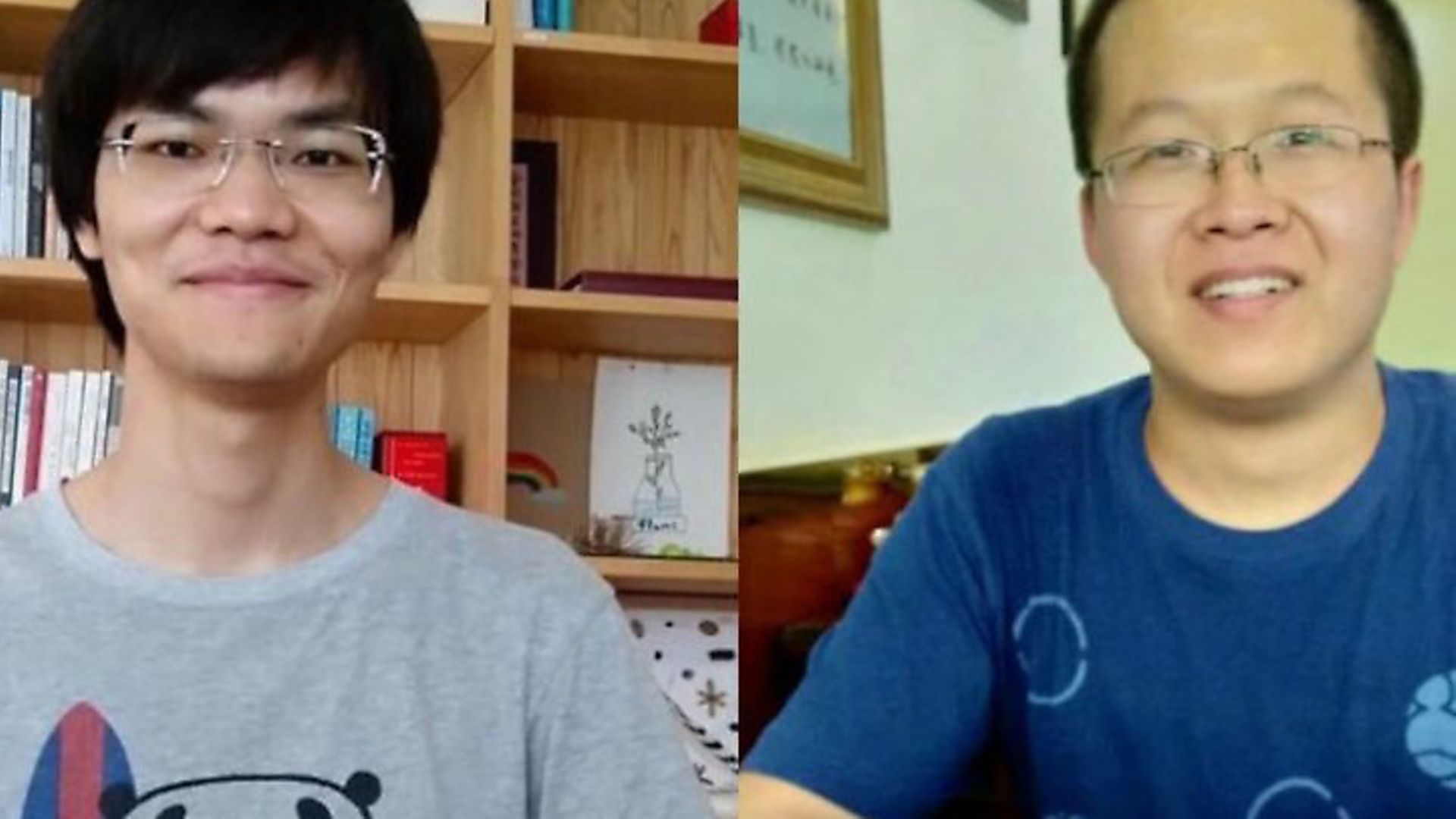
YAQIU WANG on the fate of two young idealists who risked everything to beat Chinese censorship.
Readers of online materials from sources in China are often frustrated when they click on an interesting article – only to find it has been deleted by government censors. Sometimes only a few minutes elapse after an article is published before it disappears.
Terminus 2049, a crowd-sourced project started in April 2018, sought to change that by archiving materials censored on Chinese media outlets and social media platforms. But after only a year of operation, on April 19, the Beijing police took away the group’s founders, Chen Mei and Cai Wei, both 27, from their homes. After detaining them in an undisclosed location for 54 days, authorities formally arrested them on June 12 on charges of ‘picking quarrels and provoking trouble.’ They are now being held in Beijing’s Chaoyang Detention Center.
Authorities rejected the lawyers the families hired for the two men, and instead assigned state lawyers to represent them. ‘I am very worried that Chen Mei could face unfair trial and imprisonment,’ Chen Mei’s brother Chen Kun told me.
Terminus 2049 – named after a distant planet in a galaxy invented by Isaac Asimov – was hosted on Github, the world’s largest open-source code-sharing and publishing site. The project automatically archived webpages of links that netizens had sent to the site. The articles would be preserved on the site even after they were later blocked. So Terminus 2049 was a decentralized, crowdsourcing platform in which netizens could participate and preserve the Chinese internet’s memory together. Web-users could also visit the site just to read articles that authorities didn’t want them to see. Authorities have occasionally tried to block Github, but have never fully done so, perhaps because numerous developers in China rely on it to build software.
Before Chen and Cai’s detention, Terminus 2049 had archived more than 600 articles, of which about 100 are on Covid-19. Those articles, including news pieces, interviews, and personal accounts, documented the real-life situation of people in Wuhan during the outbreak, some of which criticised the Chinese government’s initial cover-up of the novel coronavirus. The site had also archived censored articles on China’s #MeToo movement and its crackdown on labour activists.
Since Chen Mei was taken into custody, Chen Kun has tirelessly campaigned for his release. ‘When I give media interviews [about my brother], I often feel a sense of absurdity,’ Chen said. ‘I have to explain that [China’s] internet censorship… has become so severe that they were forcibly disappeared for simply archiving some articles.’
Chen Kun is right. Since president Xi Jinping came to power in late 2012, China has significantly tightened information control and ramped up propaganda, to the extent that idealistic young people like Chen and Cai willing to take up a fight against censorship have become rare.
Some Chinese people over 30 have known a Chinese internet that was freer and connected to the global internet. These tend to be the ones who most resent censorship. Some younger people, having grown up without international platforms such as Twitter and Google but only heavily censored Chinese alternatives have not experienced this relative information freedom. And government propaganda has some of the younger generations believing that the Great Firewall, the authorities’ extensive censorship system, protects them from false information and the country from social instability.
On the surface, Chen Mei and Cai Wei seemed unlikely rebels. Both are young and from inland provinces that tend to be less exposed to progressive ideas. Chen Mei, from a middle-class family, has been strongly influenced by his older brother Chen Kun. Chen Kun said that he was lucky that when he was in college the environment on campus and online were relatively free, and that he was able to gain knowledge and perspectives that are different from or contrary to official teaching. Chen Kun, who was detained for 81 days in 2014 for supporting the Umbrella Movement in Hong Kong, has passed to his younger brother what he called his ‘passion for open-source technology’ and ‘the belief that a free internet can bring about social change’.
Cai Wei was from a poor family in Hubei province. In 2007, when he was in middle school, a volunteer-based grassroots organisation called Liren that provided summer camps and libraries for rural youth set up a library in his school. Liren volunteers – mostly college students from big cities – brought him not only reading materials but also ideas that he would not have learned from school.
Chen and Cai met in 2011 at Liren-organised activities and became friends. Later, both became volunteers for the group. But Beijing had other ideas, cracking down on independent groups. Liren thrived and struggled in spite of growing official hostility, until in 2014 the authorities shut it down. They detained its founder, Li Yingqiang, for eight months in 2019.
Chen and Cai’s experiences show the power of ideals, and how one idealist can inspire another. And even in the face of government reprisals, some young activists persist. In June Nick Chen (a pseudonym) started Duty Machine, a project similar to Terminus 2049. ‘There are ‘incorrect’ memories we must preserve,’ Chen told Radio Free Asia. We must fight for our memories.’ When asked why he named the project Duty Machine, Chen recalled a student participant of the Tiananmen Square protests in 1989. When a journalist asked the student pedaling his bike why he was heading to Tiananmen Square to protest, the student responded cheerfully: ‘I think this is my duty.’
Yaqiu Wang is a researcher at Human Rights Watch
This article was published by Tortoise. Tortoise is committed to open, inclusive journalism and helping its members make sense of the world around them. Try it today. Download the Tortoise app and you can get your first 30 days for free.









